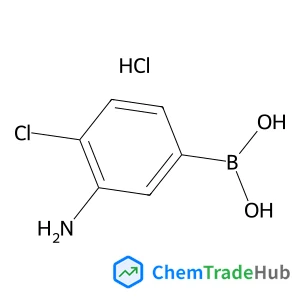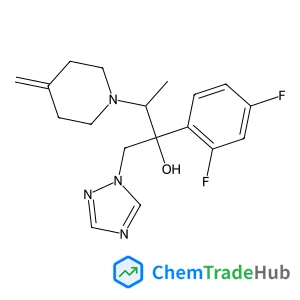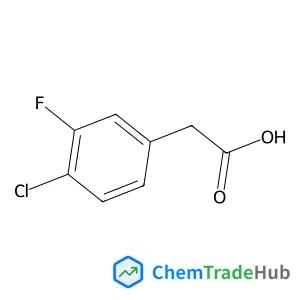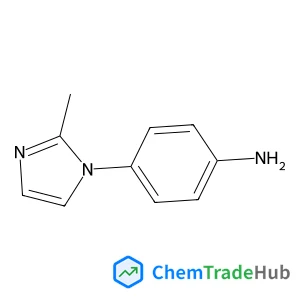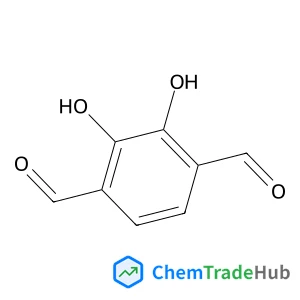Palladium-catalyzed silaborative carbocyclizations of 1,6-diynes
文献情報
Qian Zhang, Qiu-Ju Liang, Jian-Lin Xu, Yun-He Xu
An addition/cyclization reaction of 1,6-diynes was developed for the synthesis of highly substituted 1,2-dialkylidenecycloalkanes. In this work, 1,6-diynes reacted with (dimethylphenylsilyl)pinacol-borane in the presence of a palladium catalyst to afford 1,2-dialkylidenecycloalkanes bearing silyl and boryl groups with a (Z,Z)-configuration in good to excellent yields. Moreover, the corresponding products could be easily converted into other synthetically useful compounds. This protocol provides an efficient and practical method of heteroelement–element linkage addition to the unsaturated 1,6-diynes.
関連文献
IF 6.222
Synthesis and optical and electronic properties of one-dimensional sulfoxonium-based hybrid metal halide (CH3)3SOPbI3IF 6.222
From Douglas fir to renewable H2-enriched syngas via ex situ catalytic pyrolysis over metal nanoparticles–nanocellulose derived carbon catalystsIF 6.367
Performance of electrode-supported silica membrane separators in lithium-ion batteriesIF 6.367
Sensitive and specific detection of tumour cells based on a multivalent DNA nanocreeper and a multiplexed fluorescence supersandwichIF 6.222
Efficient one-pot synthesis of alkyl levulinate from xylose with an integrated dehydration/transfer-hydrogenation/alcoholysis processIF 6.367
Enhanced activity of catalysts on substrates with surface protonic current in an electrical field – a reviewIF 6.222
Cu2ZnSnS4 nanocrystals for microwave thermal and microwave dynamic combination tumor therapyIF 6.222
Milk exosomes with enhanced mucus penetrability for oral delivery of siRNAIF 6.843
Palladium-catalyzed silaborative carbocyclizations of 1,6-diynesIF 6.222
掲載誌
Chemical Communications
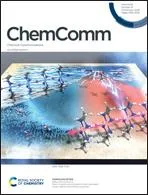
ChemComm publishes urgent research which is of outstanding significance and interest to experts in the field, while also appealing to the journal’s broad chemistry readership. Our communication format is ideally suited to short, urgent studies that are of such importance that they require accelerated publication. Our scope covers all topics in chemistry, and research at the interface of chemistry and other disciplines (such as materials science, nanoscience, physics, engineering and biology) where there is a significant novelty in the chemistry aspects. Major topic areas covered include: Analytical Chemistry Catalysis Chemical Biology and medicinal chemistry Computational Chemistry and Machine Learning Energy and sustainable chemistry Environmental Chemistry Green Chemistry Inorganic Chemistry Materials Chemistry Nanoscience Organic Chemistry Physical Chemistry Polymer Chemistry Supramolecular Chemistry
おすすめサプライヤー
 ポリシウス AG
ポリシウス AG ケミカルヴェルク · バド · ケーストリッツ
ケミカルヴェルク · バド · ケーストリッツ Verfahrenstechnik Schweitzer GmbH
Verfahrenstechnik Schweitzer GmbH キメッサ株式会社
キメッサ株式会社 ターパイ新方向化成品有限公司(元ターパイ
ターパイ新方向化成品有限公司(元ターパイ MOLLOX CHEMIE GmbH
MOLLOX CHEMIE GmbH 常州凯康生物科技有限公司
常州凯康生物科技有限公司 リマ(廣州)材料科技有限公司
リマ(廣州)材料科技有限公司 山东省博興县鑫旺食品機械工貿有 masturbation
山东省博興县鑫旺食品機械工貿有 masturbation 江西萬香萃バイオテクノロジーカンパニー
江西萬香萃バイオテクノロジーカンパニー










